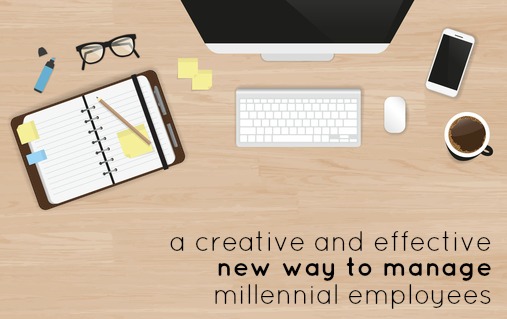The 21st century workplace demands a new set of management skills that can transcend generations, time zones, and cyberspace.

In the not so distance past, work was confined to a building. Work was executed at a desk-bound by a physical location.
If you asked someone who was on the road between 7-9:00 am, "Where are you going?", they would likely respond, "I'm going to work." Work once was a specific location.
The tech shift from fixed communications to mobile communications has redefined where and how we work. Work has shifted from a place to a space.
According to a 2015 study by Adobe, 87 percent of respondents said they check their work email at home. The study found Millennials are more likely to check work email outside of normal work hours, with 70 percent checking email while in bed. And now mobile represents 49 percent of all email opens.
More and more we are squeezing work into the cracks of life...in line for coffee, on our way to a meeting, or while on vacation.
Related Read: Create Enduring Millennial Motivation with "Why" Communication
Since we are now enabled to work anywhere and anytime, it has become insufficient to manage people based on the input, i.e., employees at their desks or time spent in the office. Instead, today's managers must manage outputs, i.e., employee's results of a task or project.
Millennials specifically don't view work bound by time or space. In fact, 69 percent of Millennials believe office attendance is unnecessary on a regular basis. Previous generations have defined company loyalty by tenure--how much time was input, but Millennials define company loyalty by impact--how meaningful was their output.
I recently spoke with a manager of a remote team, who explained his shift from input to output management. The manager had recently hired his first Millennial employee. The manager's team would routinely login at 9:00 am to start their work day. However, the manager was frustrated to notice the new Millennial employee consistently starting his day at 12:00 pm.
The manager perceived the Millennial's input as lazy, but upon confronting the employee, the manager learned the employee was working well beyond the conventional 5:00 pm, sometimes working as late as 2:00 am.
The manager had not considered alternate work hours and decided to allow the Millennial to work wherever and whenever that would enable him to produce the best work. The manager made the crucial shift from managing inputs (time logged in) to managing outputs (quality of work).
The manager in this example is not alone. 72 percent of global businesses report that increased productivity is a direct result of flexible working practices.
Related Read: The World's Greatest Living Coach Gives Game-Changing Advice on Leading Millennials
For managers ready to make the shift from managing input to managing output, here are a few tips.
- Clearly communicate the desired output. (Provide real examples whenever possible.)
- Consistently communicate timeframes for deliverables.
- Frequently deliver relevant feedback via collaborative technologies, such as Slack.
- If necessary, schedule a recurring time where your team can collaborate in real-time (online or offline).
Work has shifted, so should your leadership.
Question: How have you shifted your management style for Millennials?
Consider Ryan Jenkins to be your next Millennial/Generation Y or Generation Z keynote speaker by clicking here...
![]()
This article was originally posted on Ryan's Inc.com column, Next Generation Insights.





